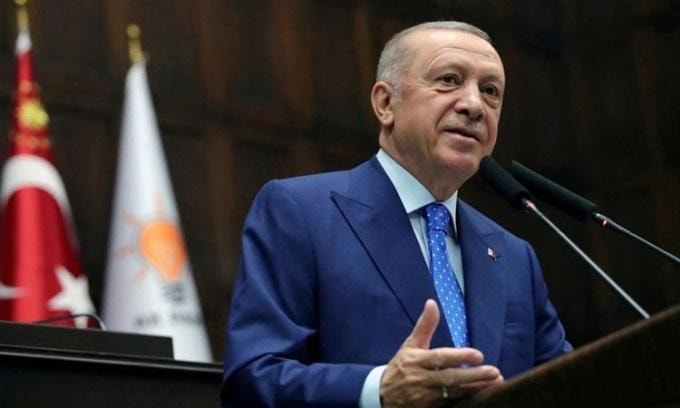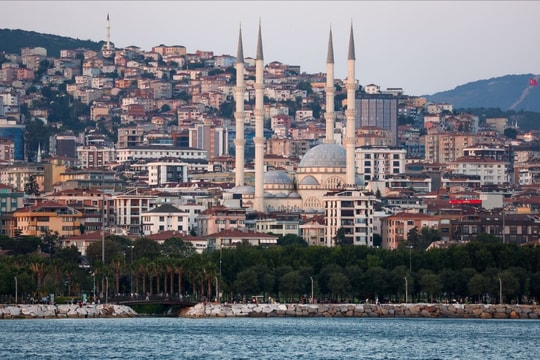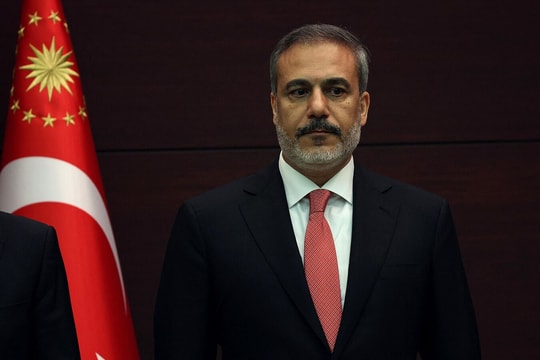Why did Türkiye change its name?
The Turkish government does not want the country to continue to be associated with turkey and the name change also seems to be part of President Erdogan's political calculations.
The name Turkey has long been associated with turkey, the poultry that is the symbol of Thanksgiving in North America.
On June 2, the United Nations approved Türkiye's request to change its name to Türkiye, the Turkish spelling of the country's name, in a move that Foreign Minister Mevlut Cavusoglu hailed as "increasing the country's brand value".
“The main reason for Türkiye to change its name was to remove the association with turkey,” said Sinan Ulgen, president of the Istanbul-based EDAM think tank. “Also, in colloquial language, the word is used to refer to failure.”
 |
Turkish President Tayyip Erdogan addresses members of his ruling AK Party during a meeting at the parliament in Ankara on May 18. Photo:Reuters. |
Türkiye is the Turkish spelling of the country's name, which has been used since 1923, when Türkiye became a new state after the dissolution of the Ottoman Empire. However, Türkiye has used the name Turkey internationally. Turkey and Türkiye are pronounced similarly, but Türkiye has the syllable "yay" added to the end.
President Recep Tayyip Erdogan said the new name best represents "the culture, civilization and values of the Turkish people".
International organizations are now obliged to use the new name, but the public will not get used to it immediately, Ulgen said. "It will probably take years for the international public to switch from Turkey to Türkiye."
According to him, this is not the first time Türkiye has tried to change its name. A similar attempt was made in the mid-1980s under Prime Minister Turgut Ozal but it did not attract much attention.
There may also be political motives behind the move as the Turkish people will vote in presidential elections in June next year, amid a severe economic crisis and Mr Erdogan will run for re-election.
This is "a strategy deployed by the Turkish government to reach out to nationalist voters in a crucial year for the country's politics," said Francesco Siccardi, an expert from the Carnegie Europe research institute.
The timing of the name change is closely linked to next year's election, he said. "The decision to change the name was announced in December last year, when President Erdogan was losing ground in the polls and the country was facing one of its worst economic crises in 20 years."
Mr Erdogan’s polling position has declined significantly in recent years. Polls late last year showed support for his ruling AK Party at around 31-33%, down from 42.6% in the 2018 parliamentary election, according toReuters.
Türkiye's foreign trade deficit widened 98.5% year-on-year to $6.11 billion in April, according to the Turkish Statistical Institute. Annual inflation rose to 73.5% last month, the highest in 22 years.
Analysts say that in times of crisis, presidents tend to use populist moves to deflect public attention from domestic issues.
"The new name will distract the domestic public from more concrete, more pressing issues, while helping President Erdogan promote the view that Türkiye needs to be stronger, more traditional," Siccardi assessed.
In another populist move in 2020, President Erdogan issued a decree converting Istanbul's historic Hagia Sofia Byzantine Museum, once an Eastern Orthodox basilica, into a mosque.
“Without concrete policies to address the country’s economic and political problems, Erdogan sought an escape through populist identity politics,” political analyst Seren Korkmaz wrote of the move to convert the museum into a mosque at the time. “He promoted Turkish nationalism and Islamism.”
Siccardi also said the new name has symbolic value because it began to be used domestically after the country emerged from the ashes of World War I. Its global adoption would "cement Erdogan's place in Turkish history, drawing comparisons to the republic's founder Mustafa Kemal Ataturk," Siccardi said.








